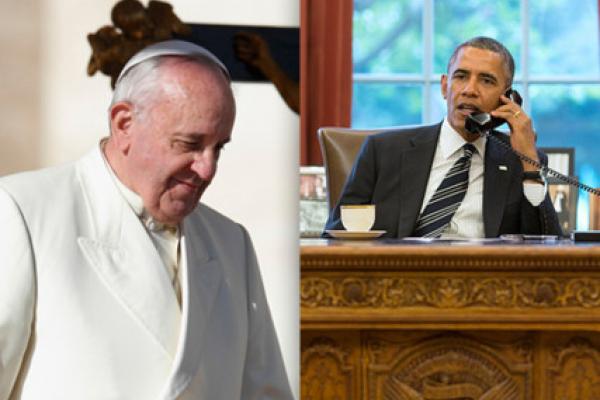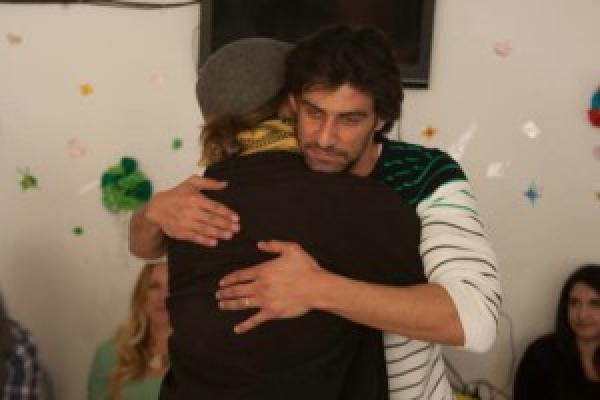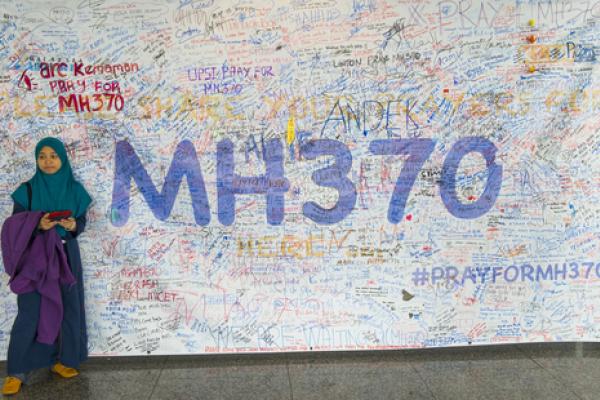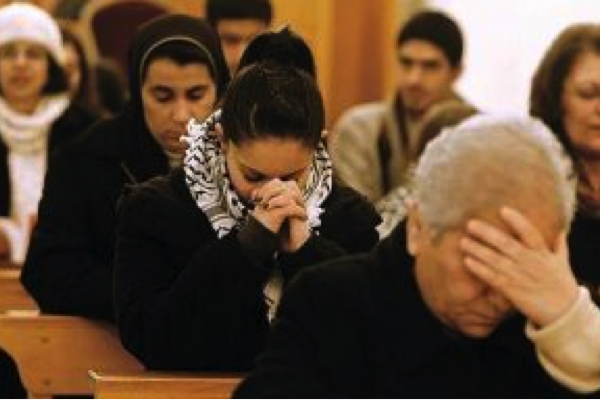I don’t typically watch much television. But when I can, I watch The Daily Show. Jon Stewart brings humor, satire and truth telling to the news of the day — qualities also characteristic of the Hebrew prophets. When I once suggested that to Stewart, he immediately denied any similarity, saying, “No, no, no, I’m just a comedian from the Borsch Belt!” But further discussion revealed a selection of topics that evoke his moral passion and even a righteous anger at political hypocrisy.
That was on vivid display in a spotlight on what Fox News commentators were saying about food stamp recipients. It began with Fox saying how families who receive support from SNAP (the Supplemental Nutrition Assistance Program) should use their food stamps, and even what they should and should not be eating, which led to repeated condemnations of poor people.
The clips from those Daily Show commentaries are below and I suggest you take a few moments to watch them. They reveal what I am calling Fox News’ “preferential option for the rich,” which is in stark contrast to the gospel’s “preferential option for the poor” and what Pope Francis is now calling the church back to. Fox News’ repeated preference for the rich and condemnations of the poor is not just a political or economic issue, but a moral and religious failure. The faith community, in particular, should take note.
President Obama is to meet Pope Francis for the first time next week as Obama wraps up a European tour, a high-profile encounter between two major world leaders that appears to carry especially high stakes from the U.S. perspective.
The White House and the American bishops have been at loggerheads for years on a range of culture war issues, and on Tuesday, just two days before the Vatican meeting, the U.S. Supreme Court will hear oral arguments on the contraception mandate that has sparked fierce opposition from the U.S. hierarchy.
But American and Vatican officials say the talks may disappoint those hoping for fireworks, and that the summit is going to focus on collaboration much more than conflict.
On one Friday earlier this month, more than 11,000 Muslims in mosques across the country heard a sermon about the Affordable Care Act.
Jewish women’s groups have visited college campuses to get students who think they’re “invincible” to sign up for health insurance.
As the national March 31 deadline for health insurance enrollment looms and with President Obama’s encouragement, organizations across a range of faiths are working to sign up uninsured Americans for coverage under Obamacare.
A “fringe hatemonger” — that’s what I called Fred Phelps in a letter to the editor of The Washington Times in 1999. In response he announced in a news release that he was coming to Colorado Springs to protest the “… false prophet James Dobson and his fag-infested Focus on the Family scam.”
It also challenged my immature understanding of theology. “What if Phelps is right?” I worried. I buried these thoughts for years — though truth be told, they’d surface at nearly every mention of his name.
Having just gotten home from guiding another The Global Immersion Project Learning Community deep into the lives of the unheralded heroes in the Holy Land to learn from their often untold stories, I am processing emotions, thoughts, and reflections that will soon bud into a renewed set of practices at home and abroad. I have now been to Israel/Palestine quite a few times, and it would be easy to think the experience becomes mechanical or normal or whatever. Well, for me, that simply hasn’t been the case. We encourage our participants to enter the experience in the posture of a learner rather than a hero. I try to do the same, and in doing so, am continually convicted, challenged, and inspired by our remarkable friends and peacemakers embedded within this conflict.
Here are 7 learnings that have risen to the surface since landing back on home soil:
The search for Malaysia Airlines Flight 370 has captivated the media and press for days. How could we simply lose a plane? But the story reveals much more about our humanity and spirituality than we realize. Here are four simple revelations that we’ve learned about ourselves during this process:
1. We Crave Answers and Explanations:
As of this writing, Malaysia Airlines Flight 370 has yet to be found (a new breakthrough has possibly led them to the crash site), but the series of unusual circumstances has created an endless amount of theories that have fed our insatiable curiosity. As other world events continue to unfold — including the possibility of a major war involving Russia and Ukraine — we’re addicted to the story of the missing plane. But why?
Deep down, we all want answers. The worst case scenario is that we’ll never know. Mystery and confusion is contrary to everything within our current society — a culture obsessed with logic, data, information, and knowledge. Surely there’s some reason the plane is missing — there had to be — but right now we just don’t know why, and it’s driving us crazy.
The search for answers and meaning motivates our politics, jobs, relationship, and spirituality — and nothing proves this more than our current infatuation with flight 370.
We often treat our faith as an ongoing investigation — desperately looking for answers.
Oppressive poverty, like corruption and unfettered crime, is a human condition to be addressed and mitigated by principled choices to alter societal structures. This is particularly illustrated in South Africa with the ongoing historic challenge of the lingering old apartheid effects of legalized separation of races and tribal groups. Attitudes and demographics are still entrenched. The marginalized suffer most. Escalating crime is still in large measure black on black, but all sectors of society live with corruption and hear in the media the drumbeat of violence — and not only when there is a high profile feeding frenzy trial such as for Oscar Pistorius.
In a meeting with Kairos Southern Africa leaders, a senior ANC party executive acknowledged, “We have failed in service delivery and turned a blind eye to corruption … please help us make the changes necessary.” To be true to the liberation pledges, Kairos members are mobilizing civil society to act accordingly, along with an informed electorate and principled politicians, to address the residue of years of oppression both here and abroad.
A public way in which religious leaders from across the theological spectrum participated in this regard was in a solidarity conference called by the South Africa Parliament “portfolio committee” on International Relations and Cooperation. Consensus for action was not automatic on the apartheid-like oppression in Israel and Palestine. But respect for those of differing theological and political understandings was for the most part encouraging and enlightening.
Wrath
Rolling in the Deep — Adele
Mama Said Knock You Out — LL Cool J
Sloth
Lazy Song — Bruno Mars
Je Ne Veux Pas Travailler — Pink Martini
Greed
Rich Girl — Gwen Stefani ft Eve
I Want It All — Queen
Gluttony
Eat It — Weird Al Yankovich
Can’t Stop — Miley Cyrus
Lust
I Want You to Want Me — Letters to Cleo/10 Things I Hate About You soundtrack
I’m Sexy and I Know It — LMFAO
Pride
I’m the Best (clean version) — Nicki Minaj
Devil Went Down To Georgia — Charlie Daniels Band
Envy
Jessie’s Girl — Rick Springfield
Dancing on My Own — Robyn
“Humanity is intimately tied to the world we live in, and every societal action and technological advance has an effect on the earth,” reads one of the plaques in the current Unintended Journeys exhibit at the Natural History Museum in Washington, D.C.
The temporary exhibit, which runs until Aug. 13, is a powerful photographic portrait of the catastrophic effects environmental disasters are having on millions of people around the world.
The exhibit focuses on five different countries that have recently experienced or continue to experience severe weather conditions that have caused displacement, migration, intense hardship, and death for inhabitants. The disasters covered are the Hurricane in the Gulf, the Earthquake in Haiti, the Tsunami in Japan, Flooding in Bangladesh, and Desertification in East Africa.
Sloth. It’s not just a strange, adorable animal we love to watch in videos. It’s also one of the “Seven Deadly Sins,” and one that I find hanging around in my daily life.
I didn’t think about sloth in particular when I chose my Lenten practices for this year, but it turns out to be the very beast (sorry) I’m trying to walk away from.
To be clear, I’m a pretty active person. I walk to work, run long distance, and I’m also very social. But the fact is, every night I look forward to getting home and enjoying what I tell myself I’ve earned: as much time on the couch watching TV and eating as I want. It’s relaxing, I figure, and takes no mental or physical energy.
This is the proverbial sloth in the room.
Yes, unwinding is good, but here’s the problem: I’m not really getting any rest from this. Sure, I’m lounging, and my brain takes a rest if I’m watching something inane; but as a Christian, rest means something different than it does for other people. Rest means Sabbath. Sabbath is the day of the week that we hold sacred, the day when we rest from our usual work and worries, the day that we give back to God and use to worship God. So ironically, my approach to getting the sloth out of my life is to bring the Sabbath into it, at the end of each day.








